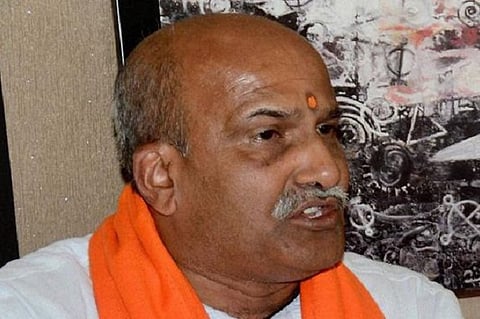

The brazen attack on young pub-goers in Mangaluru in January 2009 by Sri Ram Sene activists made the phrase ‘moral policing’ part of our common vocabularies. But that was not the first time that young men and women were attacked in Mangaluru for merely speaking to someone from another community.
Such attacks are part of the lived experiences of young men and women in the city, for whom even the simple act of interacting with someone of the opposite gender from another community can invite the ire of the self-proclaimed vigilantes of the city.
While we outraged about the impunity with which these attacks were carried out by the moral police brigades, what has happened to the attackers and the leaders leading the attacks since?
Republic TV’s South India bureau chief Pooja Prasanna carried out a series of stings in an effort to expose the regressive mindsets of the leaders of Hindu rights groups - Sri Ram Sene, the Bajrang Dal and the Vishva Hindu Parishad.
The statements made by these leaders exposes their unabashed pride in their self-imposed role of ‘saviours of the Hindu society’.
The series is framed within Pooja’s own narrative of reporting on the misogynistic group, where she was told to support their cause as a Hindu woman.
In the first of the series she interviews Sharan Pumpwell, Bajrang Dal leader in Karnataka. Sharan joined the organisation in 2005. He has been linked to several vigilante attacks and is known in the city to provide private security to real estate tycoons. He has also been accused of collecting protection money and extortion.
Sharan’s candid comment about the logistics of the way the Bajrang Dal operates is telling of the confidence with which the brigade continues to assert their presence.
“When we get a tip off our boys go there. There is usually a crowd and we can’t differentiate who is what. There are times when violence takes place and our boys also indulge in violence a few times. Usually they educate the boy and take the couple to the police station. Sometimes, even after all these measures, if injustice is being meted out to a girl and in response to that if there is violence we will always justify it. We don't blame someone for using violence to save a girl because his intention is right,” Pumpwell says.
Incidents of attacks on young men and women from both the Hindu and Muslim community for daring to interact with each other is still not a thing of the past in Mangaluru.
In April 2017, a mobile shop owner is seen being assaulted by a Hindu rights group for allegedly messaging a Hindu girl on WhatsApp. Even as the man being assaulted continues to scream out that he does not have WhatsApp and establishes that he is not the man they are looking for, the attackers refuse to relent.
In February 2017, a couple who were reportedly planning to elope is confronted by a moral police brigade on the Bengaluru-Mangaluru highway.
Such attacks that have become routine and are seen by leaders of Hindu rights groups as a means to achieving their end of keeping Hindu girls “safe” from Muslim boys.
‘Love Jihad’ has been a term that has gained currency post such attacks and is used by the Hindu outfits to describe an alleged ploy by Muslim men to lure and marry Hindu women and then convert them to Islam.
Pramod Muthalik, head of the Sri Ram Sene, the principle instigator behind the 2009 pub attack, prides himself in the system he has established to keep track of any interactions between Hindu and Muslim girls and boys. He says he has “informers” in every school and college in the city. He says he has information on who is dating whom and which boy is interested in which girl.
“We have a boy and a girl classroom wise in every college to tell us which boy is talking to which girl to see if they are going on bikes one movies and to parks. They observe and inform our organisation leaders. Their job ends there and our activists then meet the girls’ parents and inform them. If they don't pay heed then they speak to the girl and warn the boy saying that if we see you with this girl again then we will break your hands and legs,” Muthalik says.
In 2010 Muthalik was caught on camera agreeing to vandalise an art exhibition in return for money in an undercover investigation by Tehelka magazine. Muthalik and his associates were banned from entering Goa in 2014 and the banned was again extended in January 2017. There were 13 cases of hate speech registered against the Sri Ram Sene chief.
Driving fear into the hearts of young men and women is what the Hindu outfits aim to achieve. Jagadish Shenava, a lawyer and Vishwa Hindu Parishad’s district working president, says that education for women is the problem, because they start demanding individual choice. His aim, he says is putting fear in the mind of those who think freely.
"To make sure that Hindus don’t have to live in fear of Muslim boys. You can call us terrorists or moral police. We don’t mind. Now people are scared of us. The love they show is not real or targeted. Now that they are scared. Police officers will tell you that were if it not for the Bajrang Dal it would be hard to control Muslims.”
The series ends with demands for the immediate arrest of Pramod Muthalik, Sharan Pumpwell and Jagdish Shenava.